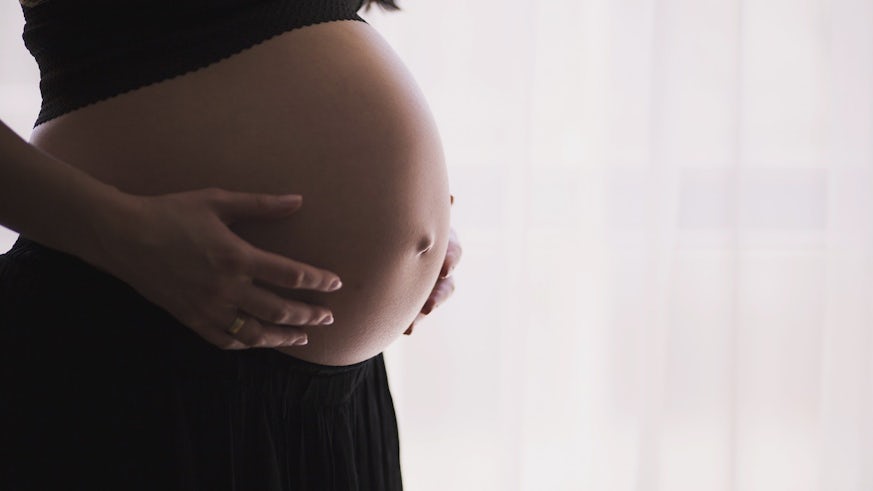The impact of COVID-19 maternity service changes on pregnant women
14 July 2021

Whilst a small number of women were unphased by restrictions put in place by maternity services during the pandemic, for most, the rigorous implementation of changes resulted in feelings of distress, anxiety, and isolation.
When the COVID-19 pandemic was declared back in March of 2020, Pregnant women were advised to ‘stringently’ social distance, and maternity services were rapidly reconfigured to accommodate social distancing and infection control measures.
Professor Julia Sanders, Professor of Clinical Nursing and Midwifery at Cardiff University is part of the WRISK study team funded by The Wellcome Trust to explore pregnant women’s experiences of risk communication during pregnancy. With the pandemic the study team turned their attentions to exploring the impact of COVID-19 ‘socially-distanced’ maternity care on women.
Some of the Key findings included:
- The communication between NHS organisations and individuals was generally regarded as poor and confusing.
- The majority of respondents agreed that those who are pregnant should practice stringent social distancing but recognised the impracticality of advice and the impact it had on their mental health. Many respondents over-interpreted advice to mean ‘shielding’, which had far reaching impacts.
- Virtual antenatal appointments were fully meeting the needs of just a few users.
- Overall, participants reported negative feelings towards policies of restrictive visiting on postnatal wards, with 71.9% feeling lonely, 43.7% being very unhappy and 57.5% feeling they needed visitors to provide practical help not provided by staff.
Professor Julia Sanders, Cardiff University said “NHS maternity visitor restrictions during the pandemic were introduced with the best of intentions - to keep women, babies and staff as safe as possible as the unknown impact of the virus unfolded. Birth is such an important social and family event it's no surprise our survey found that keeping women apart from their partners, friends and family during maternity care caused real distress and upset. The survey also showed that many women paid for private scans where their partner was still welcomed.
“The continuation of visitor restrictions in maternity clinics and wards, beyond those in place outside of hospitals, is unkind, illogical and now unjustified. Many maternity units have found creative solutions and again welcome visitors. Where restrictions still apply, solutions need to be identified so all partners can accompany women to maternity appointments and throughout birth.”
For more information you can access the full WRISK report here and the BPAS summary here.